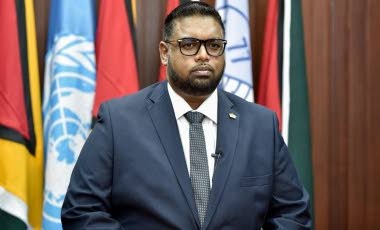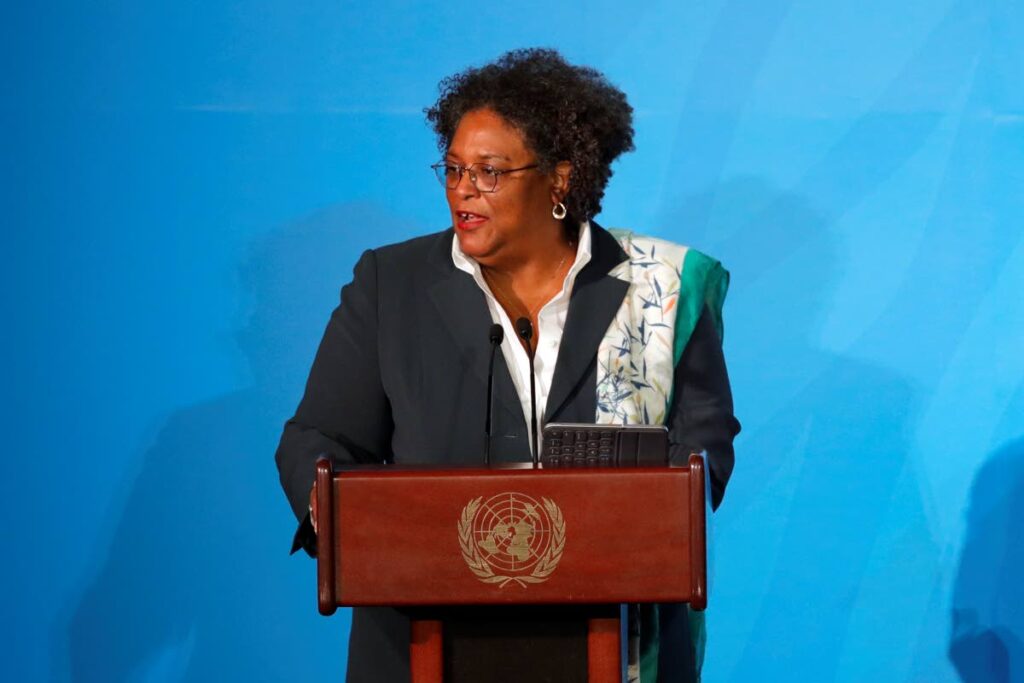President Ali: Guyana's oil and gas can make its dreams come true

President of Guyana Dr Mohammed Irfaan Ali has called on the country to realise its earning potential in his keynote address at the opening of the Guyanese Energy Conference and Expo on Tuesday.
Ali said the oil and gas discoveries, and the resulting revenue from its content could generate the revenue to build the Guyana that its people have dreamed of for generations.
“It gives us the opportunity with the resources to diversify our economy, building out through many new pillars so that we will be resilient and sustainable,” Ali said.
“We never had the capital or the resources to build the diversified economy that we are talking about. We have always spoken about the dreams and aspirations of generations of the Guyanese. Today with hard work and humility, we have the ability to make that giant leap for Guyana and all of humanity.”
He said Guyana, a world leader in climate change ecosystems and biodiversity, has 18.3 million hectares of standing forest, which covers about 87 per cent of its land area which stores 19.5 gigatons of carbon worth about US$195 billion.
The forest contains four per cent of all known plant species in the world and three per cent of all known animal species.
The country’s forestry sector has an estimated value of US$500 billion, and has a deforestation rate of less than 0.05 per cent.
“We can sustainably harvest one million cubic metres per year, at present we harvest 400,000 cubic metres valued at US$80 million a year. The sector presents opportunities for large scale downstream processing, prefab housing, prime value added species for niche markets, partnering with environmental services, reforestation programmes and forest plantation, all linked to new emerging and potential markets,” Ali said.
He added that the country has gold reserves estimated at about US$35 billion, quarrying reserves estimated at US$1 billion, diamond reserves at US$750 million as well as silica sand reserves estimated at GYD$37.7 billion. He added that the country also holds tremendous potential in the adventure tourism and golfing industries, as well as the potential to tap into the food processing markets with viable land for poultry, dairy and cattle production.
“Imagine if we tap into 25 per cent of that market. This is the potential for investors.”
Ali added that their development strategy, while making use of revenue from oil and gas, will be built on a low carbon pathway with the core objectives being economic sustainability, diversification, investment in climate change mitigation and adaptation, carbon credit biodiversity and eco-management systems and transition to clean energy.
Hydrocarbons and its revenue would complement the potential for solar energy, water energy, forestation, hydrogen and hydro power.
“We are not only talking about regional opportunities,” Ali said. “With Suriname and Brazil we are exploring the development of a new energy corridor that we can fully support and participate. Exxon and Guyana are also working on that natural gas strategy so that we can realise the importance of our strategic position.”

Barbados Prime Minister Mia Mottley also spoke of the potential in garnering revenue through hydrocarbons with BHP Billiton completing a 2,700 sq km survey of two blocks off the Barbados shore. She called for Caricom to have a greater part in the conversation of providing energy to the world, especially since the ravages of climate change affects Caricom countries and others in the region the most.
“We have a climate crisis; there are no two ways about it. We must fight to ensure that crisis does not make migrants of us all. But at the same time net zero does not mean no fossil fuels. It means that we have to produce enough to offset the impact of the fossil fuels. To that extent, the mix that the energy association sees at 80 per cent today of fossil fuels to 20 per cent by 2050, the question is who should provide that 20 per cent?”
“Will the world make the same mistake of 1945, or will we say that equity demands of us now conversations among those whose poverty has been cemented by centuries of extraction and exploitation by the few to catch up with those whose per capita income is multiple times that found in Guyana, Suriname and Barbados and others. Or will the world simply ignore that disparity and perpetuate a hypocrisy that is too familiar with our condition,” she said.
The 2022 international energy conference and expo in Guyana ends on Thursday.


Comments
"President Ali: Guyana’s oil and gas can make its dreams come true"